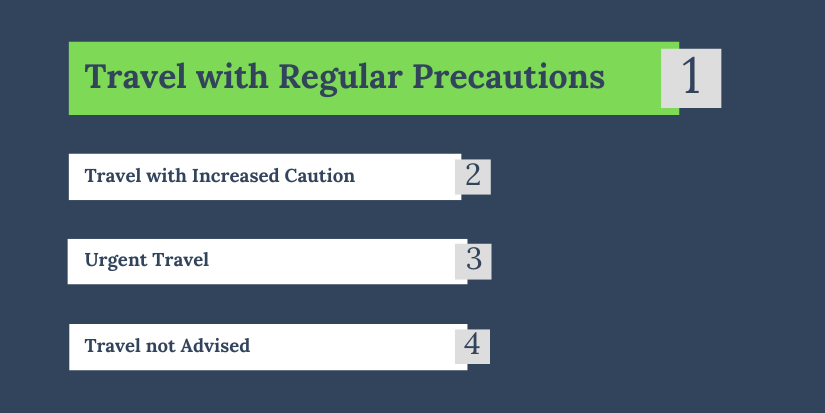
VISA REGIME
For holders of national passports and other travel documents: Visa is not required for stays of up to 90 days
For holders of diplomatic and official passports: Visa is not required for stays of up to 90 days
Note: Holders of an emergency travel document in transit do not require a visa if they do not initiate the immigration procedure, and on the same day continue their travel to the final destination
ENTERING AND LEAVING THE COUNTRY
Citizens of the Republic of Serbia who hold the national passport do not need a visa for a tourist visit and stay in Chile of up to 90 days (visas for a longer stay and other consular services are provided by the Embassy of Chile in Athens (Greece)). According to Chilean laws, children under the age of 18 traveling alone must have parental or guardian authorisation for travel. In case this authorisation is issued in the Republic of Serbia, it must be properly legalised by the competent Consulate of Chile. Children under the age of 18 traveling accompanied by one parent or guardian must have an authorisation for travel from the other parent or guardian, also duly legalised. A parent traveling with a minor must have proof of kinship, i.e. the original or a certified copy of the excerpt from the Registry of Births. This applies to both foreign and Chilean nationals.
SOCIAL SECURITY AGREEMENT
No social security agreement has been concluded.
USEFUL INFORMATION
HEALTH SITUATION — The Republic of Serbia and Chile do not have an agreement on mutual health insurance of their citizens, thus, it is recommended to have travel insurance.
Visits to the doctor in most cases cannot be paid with a card, only in cash.
The general sanitary situation in Chile is good and the biggest problem is air pollution which is at its highest levels in winter (from May to August).
The emergency telephone number is 131.
SECURITY SITUATION — There have been frequent violent mass demonstrations since October 2019, due to the social dissatisfaction of citizens. Therefore, large gatherings should be avoided, primarily in Santiago de Chile.
The crime rate in Chile is not high. However, tourists are advised to take general precautions and to stay in larger cities or tourist centres.
Chile is in a seismic zone. Information on earthquake measures is available on the website of the Chilean National Office for Emergency (Oficina Nacional de Emergencia de Chile: www.onemi.cl).
Chile is a popular tourist destination for adventure sports, and tourists are advised to contact the Chilean Forest Service (www.conaf.cl) or the Association of Mountaineers of Chile (www.feach.cl) before traveling to the remote parts of the country.
Anyone who unknowingly violates Chilean laws may be expelled out of the country, detained or arrested. Penalties for possession, use or illegal drug trafficking are extremely severe in Chile.
The police phone number is 133.
TRANSPORT — Chile's international airport is Comodoro Arturo Merino Benítez in Santiago de Chile, which is also Chile's main international port.
Traffic in Chile is generally safe and well organised. Major roads across the country are good. It is necessary to use chains in the mountainous areas in the winter. Thick fogs are frequent at night.
To drive in Chile, foreign nationals must have an international driver's licence.
OTHER INFORMATION — Chilean customs regulations are very strict when it comes to temporary import and export of weapons, medicines or protected animal species.
When entering and leaving Chile, a traveller is obliged to declare cash in excess of 10,000 dollars, as well as proof of origin, in case of a larger amount.
The Chilean currency is the peso.
All major payment cards are accepted. The price of hotel accommodation ranges between 150 and 200 dollars. Food costs between 50 and 100 dollars per day.
Contact information:
For consular assistance and protection, you may contact the Embassy of the Republic of Serbia in Santiago de Chile, at the following phone number: +569 6 608 54 39, and e-mail address: srb.emb.chile@mfa.rs.
